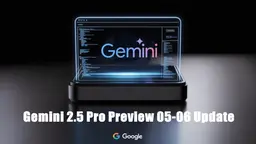Meta Notebook Llama Introduction
Meta Llama 3.1 is an open-source large language model available in 8B, 70B and 405B versions that can be fine-tuned, distilled and deployed anywhere.
View MoreWhat is Meta Notebook Llama
Meta's Llama series, the core of its AI language model initiative, has evolved from Llama 1 to the latest Llama 3.2, catering to researchers, developers, and businesses with its open-source foundation and instruction-tuned models. The latest versions, Llama 3.1 and 3.2, offer diverse sizes, ranging from the lightweight 1B and 3B for mobile devices to the robust 405B models rivaling closed-source counterparts like GPT-4. Building on these models, Meta launched NotebookLlama on October 27, 2024, as an open-source alternative to Google's NotebookLM, designed to generate podcast-style summaries from text files, further demonstrating its commitment to accessible and versatile AI solutions.
How does Meta Notebook Llama work?
Llama 3.1 uses a standard decoder-only Transformer architecture, similar to other large language models. It is pre-trained on a massive dataset of text, allowing it to learn patterns and generate human-like text. The models come in different sizes (8B, 70B, 405B parameters) to balance performance and computational requirements. Users can access the models through APIs or download them for local deployment. Llama 3.1 supports various capabilities including multi-lingual processing, complex reasoning, coding assistance, and tool use. It can be fine-tuned on specific datasets or integrated with other AI techniques like retrieval-augmented generation (RAG) to enhance performance on particular tasks.
Benefits of Meta Notebook Llama
The open-source nature of Llama 3.1 allows researchers and developers to study, modify, and build upon the models. This fosters innovation and helps democratize access to advanced AI capabilities. The range of model sizes provides flexibility, enabling deployment on various hardware setups from personal computers to large-scale cloud infrastructure. Llama 3.1's performance is competitive with proprietary models, making it a cost-effective alternative for many applications. The models support a wide range of languages and tasks, making them versatile tools for diverse use cases. Additionally, Meta provides resources and tools to help users implement Llama 3.1 responsibly, addressing concerns around AI safety and ethics.
Meta Notebook Llama Monthly Traffic Trends
Meta Notebook Llama achieved 39,954 visits with a 20.2% growth in visits. The release of Llama 4 in April 2025, with its multimodal and multilingual capabilities, likely contributed to this moderate growth. The LlamaCon developer conference and Meta's $80 billion investment in AI may have also increased interest and traffic.
View history traffic
Related Articles
Popular Articles

Gemini 2.5 Pro Preview 05-06 Update
May 7, 2025

Suno AI v4.5: The Ultimate AI Music Generator Upgrade in 2025
May 6, 2025

How to Install and Use FramePack: The Best Free Open-Source AI Video Generator for Long Videos in 2025
Apr 28, 2025

DeepAgent Review 2025: The God-Tier AI Agent that's going viral everywhere
Apr 27, 2025
View More









